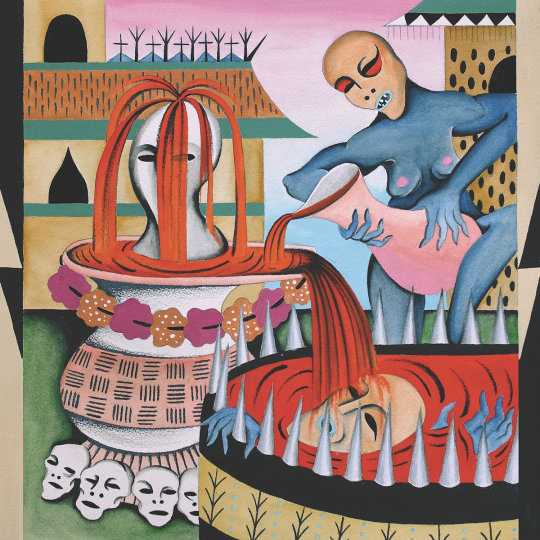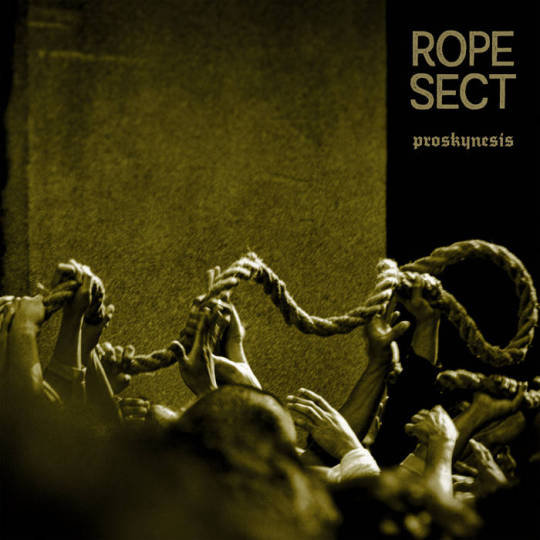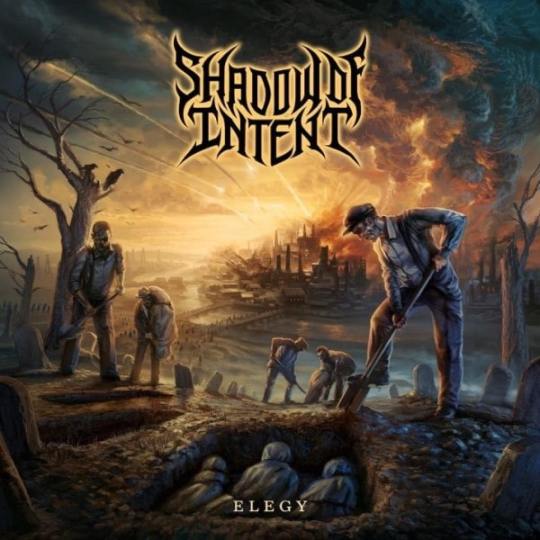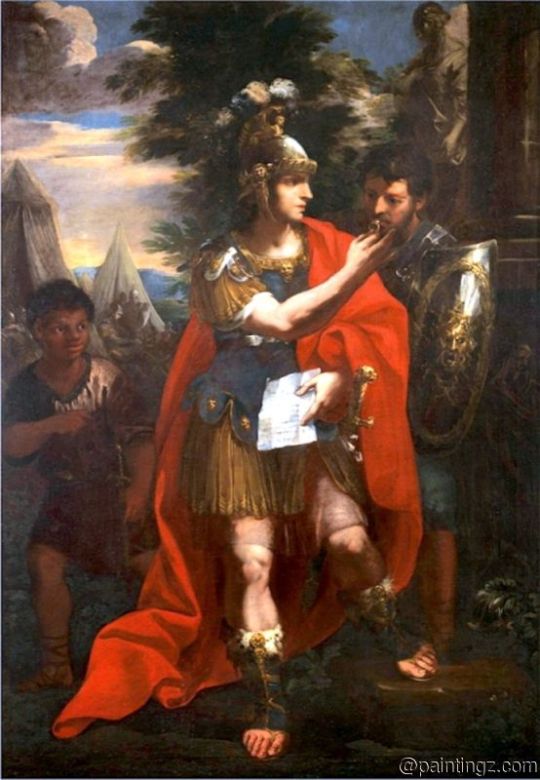#proskynesis
Video
youtube
ROPE SECT - Proskynesis
Post-punk/Deathrock from Germany. 2021.
#rope sect#proskynesis#dresjams#lava is probably my favorite track#but this entire album is a masterpiece#on repeat
0 notes
Text
the loopholes early christians jumped through to justify their portrayal of christ is honestly headache inducing
#spent this entire semester learning about early christian icons and i gotta present this week on one article#and the whole debate between the use of latreia vs proskynesis is interesting but at the same time im so tired
0 notes
Note
If you could talk to Alexander only once. What would you say/ask him?
Oh, geez. How LONG do I get to talk to him? Ha. I could ask a lot in, say, 24 hours. 😂 Also, would he be required to answer honestly? Alexander was a master of his own marketing. He lied a lot, or at least bent the truth. LOL
There are several things I'd really like to know, maybe first and foremost how the court actually functioned, practically speaking. How much power did the king have and how much curb did the Hetairoi (Companions) enjoy? Or did it depend on the king (as I think was probably the case)?
Why, yes, I am a court historian, how could you guess?
I'd also ask about the history of Macedonia--a proper king list, how did it expand, etc.? (This assumes he'd actually know this beyond "legend," but he'd know more than we know). What happened precisely in Phil's last two years--and for that matter, most of his reign?
Then I'd get to the bottom of what, exactly, were his goals in visiting Ammon, the burning of Persepolis, the Gedrosian desert, and when he began introducing Persian court ceremonial, and in what order? Did the proskynesis thing actually occur, and if so, what was he thinking? What they hell actually happened with Philotas? What were his real final plans--was Arabia a cover for constructing a fleet to attack Carthage? And WHAT, exactly, did he say on his deathbed about his successor? Was Herakles really his son or was that made up later? Did he have an inkling things would crash and burn the way they did? (A lot of the other stuff is, to my mind, easier to guess; these are real questions for me.)
Only then would I get around to the personal stuff. Haha. When did he meet Hephaistion, what was Aristotle like and what did he teach the boys, how important was Ptolemy really (because boy I think he inflated his importance under Alexander)? How many siblings did ATG actually have? Any die in childhood? What was the order of Phil's marriages? How old was Boukephalas when ATG acquired him, and what did they really pay for that horse? (Not 13 talents!) How many mistresses did he actually have? Was Hektor also a "favorite" as the sources imply? Was there a Bagoas?
So yeah, I could ask a LOT if I could just chain him to a chair for 24 hours....
20 notes
·
View notes
Text

The Mother of God
Among the saints a special position belongs to the Blessed Virgin Mary, whom Orthodox reverence as the most exalted among God's creatures, 'more honourable than the cherubim and incomparably more glorious than the seraphim'. Note that we have termed her 'most exalted among God's creatures': Orthodox, like Roman Catholics, venerate or honour the Mother of God, but in no sense do the members of either Church regard her as a fourth person of the Trinity, nor do they assign to her the worship due to God alone. In Greek theology the distinction is very clearly marked: there is a special word, latreia, reserved for the worship of God, while for the veneration of the Virgin entirely different terms are employed (duleia, hyperduleia, proskynesis).
In Orthodox services Mary is often mentioned, and on each occasion she is usually given her full title: 'Our All-Holy, immaculate, most blessed and glorified Lady, Mother of God and Ever-Virgin Mary'. Here are included the three chief epithets applied to Our Lady by the Orthodox Church: Theotokos (Mother of God), Aeiparthenos (Ever-Virgin), and Panagia (All-Holy). The first of these titles was assigned to her by the third Ecumenical Council (Ephesus, 431), the second by the fifth Ecumenical Council (Constantinople, 553). The title Panagia, although never a subject of dogmatic definition, is accepted and used by all Orthodox.
The appellation Theotokos is of particular importance, for it provides the key to the Orthodox cult of the Virgin. We honour Mary because she is the Mother of our God. We do not venerate her in isolation, but because of her relation to Christ. Thus the reverence shown to Mary, so far from eclipsing the worship of God, has exactly the opposite effect: the more we esteem Mary, the more vivid is our awareness of the majesty of her Son, for it is precisely on account of the Son that we venerate the Mother.
-- Kallistos Ware, The Orthodox Church
11 notes
·
View notes
Text
Short Daeron Recs
I was going to drop this at the end of this extended defense of Daeron, but these fics deserve their own post, so have some unsolicited sympathetic Daeron takes.
I actually have a whole Daeron Collection of both my fics and bookmarks, but these are some low-commitment recs for the Daeron-curious:
Runes (G, 800 words) by @starspray. Daeron shows the Dwarves his Cirth.
The Minstrel (G, 320 word poem) by finwen (proskynesis). Daeron and lamenting Luthien.
The Song that Bound Us (G, 250 words) by LadyBrooke. Daeron and Melian and foresight.
A Haunting Tune (G, 900 words) by @cuarthol. Young Turin receives a mysterious visit in Menegroth.
swells of song and sound (G, 1k words) by @shores-of-esgalduin. Daeron comforts Maglor at Mereth Aderthad.
The Singers in the Wood by bookwormfaith (G, 650 words). Daeron and Maglor and faerie.
Down in the Valley (G, 900 words) by @lemurious. Daeron and Maglor are the tra-la-la-lally elves.
Pavane for a Horned Queen (G, 800 words) by @hhimring, Daeron plays for one of the Kine of Araw.
Music was his magic and his madness rolled in one (G, 570 words) by @quixoticanarchy. Reflections on Daeron and Maglor and eternity.
And She Forgave His Betraying Word (T, 1.5k words) by me. Daeron + Luthien, the last time they see each other.
Prompt ficlet by me (G, 300 words). Beren, Daeron, little Dior and talk of Luthien on Tol Galen for the prompt Beren/Daeron, word: Luthien.
29 notes
·
View notes
Note
Challenge! Name five curiosities or interesting facts about ancient Iran! *Just* five>:) Oh yes, I'm evil.
- N💚
Hooray! And you evil thing you.
Fact #1: The first ever instance of recorded human rights is in ancient Iran! You could say they invented it. It was introduced by Cyrus the Great during the Achaemenid empire, and he wrote it down which is now called the Cyrus Cylinder.
Fact #2: Zoroastrianism was the state religion and native religion of the ancient Iranians! It is the oldest monotheistic religion, believing in a God called Ahura Mazda.
Fact #3: Iran has a mythological history that Ancient Iranians (Sassanian Dynasty) believed in. The first dynasty is the Pishdadian dynasty and the second is the Kayanian dynasty. These are mythological and not real dynasties!
Fact #4: Zoroastrian priests (Magi) were quite unique and different from priests of other nations. In zoroastrianism, there is a class of animals that are seen as good to kill (khrafstra). It included: frogs, reptiles, scorpions, insects like ants or wasps.
Fact #5: The achaemenid dynasty Iranians engaged in proskynesis, which means bowing before someone of superior rank. The ancient Greeks found this to be ludicrous as they only engage in proskynesis for deities. This led them to believe the ancient Iranians worshipped their kings as Gods, but this was just not true. It was simply an element of their court ceremony.
3 notes
·
View notes
Text
“I like to illustrate this new step urged upon us by the Last Supper by drawing out the different nuances of the word "adoration" in Greek and in Latin. The Greek word is proskynesis. It refers to the gesture of submission, the recognition of God as our true measure, supplying the norm that we choose to follow. It means that freedom is not simply about enjoying life in total autonomy, but rather about living by the measure of truth and goodness, so that we ourselves can become true and good. This gesture is necessary even if initially our yearning for freedom makes us inclined to resist it.”
- Pope Benedict XVI, APOSTOLIC JOURNEY TO COLOGNE ON THE OCCASION OF THE XX WORLD YOUTH DAY - EUCHARISTIC CELEBRATION, 21 August 2005
3 notes
·
View notes
Note
🎸
Proskynesis II - Rope Sect
Void of Words - Chapel of Disease
Inside Your Fur - VOLA
Hive Mindless - A Forest of Stars
Wizardry Assemblage - Dark Millennium
6 notes
·
View notes
Text
“Nos adoramus quod scimus, «Noi adoriamo ciò che sappiamo (hò oidamen)» (Giovanni, 4, 22). Ci inginocchiamo soltanto di fronte a ciò che ci appare manifesto e che perciò diciamo di sapere; soltanto quod scimus merita per noi l'atto della ‘proskynesis’. La sua disvelatezza, ‘alétheia’, è condizione della verità del nostro sapere…”
(Massimo Cacciari, “Metafisica concreta” - Adelphi)
0 notes
Link
Hierarchies, typologies, and patterns are important to understanding Orthodox Theology.
I think of Christ as the icon of God the Father (John 14:8-10), A priest as the icon of Christ to his congregation, a father as priest to his family (Ephesians 5:22–24), and a Christian as an icon of the priesthood (1 Peter 2:9) to the world.
To understand an icon, is to understand a place within a hierarchy. Too often within the Protestant West, we tend to flatten things. We take 1st Peter, call ourselves Priests to the world, and call it a day, without really taking the time to try to understand what is demanded of us as a priesthood, and more importantly, the kinds of limitations we have as priests based upon our place in the hierarchy.
As a Christian, my role is to intercede for the world with my body. As a father, my role is to intercede for my family as well. My role is of responsibility.
At one point I was going to try to detail a long essay -- a ramble maybe -- of what is truly laid out in Ephesians. That with a certain authority comes greater judgement. A slave will be judged by only what he can control, his attitude, if nothing more; whereas princes, rulers, and yes - even priests, will be judged by how they used or abused their positions, and how they either aided or abused those around them. It’s a sobering realization if you happen to be someone targeted as an authority.
Lord have mercy upon me,
A Sinner.
0 notes
Photo










June 2022 Most Jammed Albums/EPs
Each month I will be posting the 10 albums that I found myself frequenting the most! Some will be new releases, while others may be backlist titles. I enjoy being able to look back over time to see which music held my attention. Let me know if any of these are among your favorites...or if you happen to give any a listen through…let’s talk music! In alphabetical order:
Aara - Triade II: Hemera - Atmospheric Black Metal from Switzerland. 2022.
Dir en Grey - Phalaris - Avant-Garde Metal from Osaka, Japan. 2022.
Graveworm - When Daylight's Gone - Melodic Black Metal from
Brunico (Bolzano), Trentino-South Tyrol, Italy. 1997.
Gulch- Impenetrable Cerebral Fortress - American Hardcore from Santa Cruz, California, USA. 2020.
Metric - Fantasies - Indie Rock from Toronto, Ontario, Canada. 2009.
Rope Sect - Proskynesis - Post-Punk/Death Rock from Germany. 2021.
Screeching Weasel - Bark Like a Dog - American Punk from Chicago, USA. 1996.
Shadow of Intent - Elegy - Symphonic Deathcore from Connecticut, USA. 2022.
Vehemence - God was Created - Melodic Death Metal from Phoenix, Arizona, USA. 2002.
White Ward - False Light - Experimental/Post Black Metal from
Odesa, Odesa Oblast, Ukraine. 2022.
#dresjams#dresjams2022#aara#dir en grey#graveworm#gulch#metric#rope sect#screeching weasel#shadow of intent#vehemence#white ward
5 notes
·
View notes
Text
Proskynesis
Proskynesis is something that I don't often see people talk about within the Hellenic polytheist community. Even when it happens to be a topic of discussion, there's usually plenty of confusion surrounding it.
Let's talk about it!
What is it?
The information we have on it nowadays is somewhat limited and the resources talking about Ancient Greece often mention it solely in the context of Alexander The Great and the Persians, so it's no wonder proskynesis might seem quite mysterious to some when it comes to Hellenic Polytheism nowadays.
But what on Gaia's loving Earth even is "proskynesis"?
Proskynesis [προσκύνησις] - the meaning may vary and has been discussed by classicists for quite some time; some imply it's an act of kneeling but if we look at the etymology of the word, it indicates an act of kissing or hand-kissing. It could literally mean something like "I kiss towards" or "I blow a kiss". Lucian also connects the gesture with "a kiss thrown with the hand". Proskynesis is also often acquainted with the Roman adorare.
However, given the variety of forms, the word appeared in ancient texts, we can safely assume that it was not used consistently to describe a single specific gesture or action.
The custom was primarily associated with Persia and the Greek ideas of Persian behaviour. It was regarded as an old, traditional act of prostration and a gesture of supplication performed before a person of a higher rank. Plenty of accounts frequently refer to this action as being performed before a king.
Overall, although the narrow meaning of the word might be "to blow a kiss", it can be seen to be used in a slightly looser sense to mean "to greet in the Persian style", and thus to include within its range of possible meanings "to prostrate oneself".
The Greeks did not perform proskynesis towards any people, as they believed one should not proskynesis to any "human master". Some accounts also imply the action was considered to be solely "reserved for the gods". Performing proskynesis in this way might've been considered quite ludicrous in Ancient Greece.
We can also see it appear in several tragedies, comedies, dialogues and historical accounts with several different meanings:
Meaning: supplication/prostration
The word appears in Wasps, where Aristophanes indicates that to prostrate oneself before another human being is not to blaspheme but "to show oneself a slave".
Herodotos mentions two Spartan hostages refusing to perform proskynesis before king Xerxes. as it's not their custom to proskynesis before men. Xenophon later references this passage and although the Spartans in Herodotos' Histories make no mention of the gods (Xenophon does), it is clear that in both passages the contrast being drawn is between the freedom of the Greeks and the enslavement of the subjects of the Persian King.
Meaning: religious/cult (kiss)
Lucian describing the death of Demotenes says that the orator was in the temple of Poseidon accompanied by a guardian who was supposed to bring him alive to King Antipater. While pretending to perform proskynesis to the god he took poison "without arousing suspicion of the guardian for lifting his hand to his mouth".
Plato in Republic uses the word to describe appropriate behaviour towards the graves of heroes and in Laws, he references the Greeks and "Barbarians" performing proskynesis at the rising and setting of the sun.
Meaning: referring to places (in this case, it could've been kissing the earth when coming back after a period of absence)
In Oedipus Coloneus, Theseus is described as "doing proskynesis to the earth and to Olympus of the gods at the same time"
In Sophocles' Philoctetes, Philoctetes himself talks about doing proskynesis to his home on the island of Lemnos.
Meaning: referring to other customs (kiss)
In Prometheus Bound, the chorus suggests that wise men proskynesis before Adrasteia [epithet of Nemesis meaning "unavoidable (punishment)"]. The custom was mentioned in a couple other texts. It was done for deprecating the wrath of the goddess or the vengeance of the god for "indiscreet words".
Proskynesis might've been performed after sneezing since a sneeze was often considered a divine omen (see more about this here). Xenophon describes how he himself had made a short speech and "just as he said it someone sneezed, and the soldiers on a single impulse did proskynesis to the god."
To sum it up: in a more general sense, proskynesis could be regarded as a solemn gesture of respect that could've been used in the context of worshipping gods, reverencing sacred objects and places (at least in Greece).
What's the deal with Alexander The Great?
Without getting into too much detail, Alexander the Great proposed this practice during his lifetime in adapting to the local customs of Persian areas that he conquered, but it was not accepted by his Greek companions. In Alexander's case, it was the prostration type of proskynesis. It's also thought to have been connected with his desire to be recognized as the son of Ammon/Zeus. Most of his men could cope with Alexander's Persian interests but honouring the ruler as if he was a god went a bit too far for them. Eventually, Alexander did not insist on the practice, though.
How to perform proskynesis in worship?
It's not too common nowadays, to my knowledge and we don't even know for sure how common this practice was in ancient times but I think it's something worth looking into and possibly incorporating into one's practice if desired.
The easiest ways to perform proskynesis (kiss type!!) in day-to-day worship:
when walking by or approaching a statue/image of the god
in a way to greet the god
at the sun (Helios) or the moon (Selene)
towards the sky (for Ouranic Gods)
towards the sea/some body of water (for the Sea Gods)
towards the earth (for Chthonic Gods)
Those are only some of my suggestions. I personally do use it in my practice and think it's a nice, low-effort way to honour Theoi on daily basis!

Sources:
B. M. Marti, Proskynesis and Adorare
Herodotos, Histories
L. R. Taylor, The 'Proskynesis' and the Hellenistic Ruler Cult
H. Bowden, ON KISSING AND MAKING UP
#proskynesis#helpol#hellenic polytheism#hellenic gods#hellenic deities#hellenic pagan#deity work#hellenic devotion#hellenic community#hellenism#hellenic paganism#hellenic#hellenic polytheist#helpol gestures#theoi#hellenic worship#ancient greek history#ritual gestures
192 notes
·
View notes
Note
Going through other classical fan’s blog on here, I saw one person put forward a theory that Hephaestion was erased from history due to his excessive cruelty, such as him torturing Philotas. Could there be any truth in that? Was Hepheastion uniquely cruel as he became more powerful in Alexander’s empire?
The Problem with Hephaistion’s Erasure
…is that he wasn’t erased. (Or not until later.) It’s perception more than a reality. He actually has quite a bit of mention in Curtius, Arrian, Diodoros, and Plutarch—as much (or more) than any of the other younger marshals during Alexander’s lifetime. This reflects what was present in the now-lost sources written during ATG’s career or in the generation after his death (Kallisthenes, Kleitarchos, Ptolemy, Aristobulos, Marsyas, Nearchos, Onesikritos, etc.).
Yet the notion that he was erased from the historical record is a common one. When I first arrived at Penn State and announced that I wanted to do my dissertation on Hephaistion, Gene Borza told me, “I don’t think there’s enough information in the ancient sources to support an entire dissertation on him, even as a court study.” Then, that very summer, Gene reread the ancient sources for a project of his own, and next fall, he admitted (with some surprise), “He’s in the sources more than I realized.”
(I bit my tongue on, “I told you.”)
So, what’s going on here?
First, Hephaistion didn’t outlive Alexander. Maintaining his memory was not particularly useful to any of the surviving marshals/Diadochi, except maybe Perdikkas, who inherited his position. Yet, like Leonnatos and Krateros, Perdikkas also died (relatively) early in the wars, and the Successors who outlived him (e.g., Ptolemy, Antipatros, Antigonos, Lysimachos, et al.) blackened Perdikkas’ memory.
Ergo, Hephaistion fades into the background until appropriated later by Hellenistic- and especially Roman-era rhetorical schools as part of popular anecdotes and topoi (conventional tales or themes) about Alexander.
Do you know HOW many times the “He is Alexander, too?” story appears? Sometimes positively, occasionally negatively. Same with Hephaistion reading (beside Alexander) a letter from Alexander’s mother. He also gets trotted out frequently as an example of Alexander’s lack of self-control, given the king’s “excessive” grief at his death (which seems to grow with each retelling).

Yet NONE of those has to do with his role as chiliarch or his military accomplishments. Also, in Plutarch—probably the most popular history of Alexander*—we find nothing about Hephaistion as a commander, and little about politics. Plutarch tells us the king sent Hephaistion a little dish of smelts (or sardines); that Hephaistion and Krateros got into it with swords; that Hephaistion blamed Kallisthenes for the failure of the proskynesis banquet; that he ate a whole boiled fowl and drank a pitcher of wine on the morning of his death; and that Alexander called him Philalexandros. But if Plutarch were all we had, you’d never know Hephaistion was named chiliarch!
It’s largely the personal that came down to later historians…and movie-makers like Oliver Stone (or Netflix, even when their Hephaistion historian tells them to give him more to do; at least he got to intrigue with Mazaeus). One must go to the original histories and start making lists to realize just how much Hephaistion appears, particularly post-Baktria.
The man did have a career apart from being the king’s bosom buddy. 😒
As for whether he was exceptionally cruel, three problems complicate determining that: 1) biases in the sources, 2) biases of the people who knew him, and last, 3) simple cultural differences.
Let’s start with the last, as it’s mentioned in the ask. Hephaistion was one of three marshals who interrogated Philotas. To modern readers, use of torture strikes as horrific (as well it should). But in the ancient world, torture during questioning was standard, for some. A slave’s testimony wasn’t even admissible in court unless given under torture. (Otherwise, they believed a slave would lie to save their master.) Torture of arrested (lower-ranking) soldiers in military camp was also the norm, especially by the Roman era.
It’s not the torture itself that’s shocking. It’s who it was performed on: a high-ranking member of the Hetairoi. Arrian glosses over the whole thing because Philotas (Parmenion’s son) was tortured, not because torture was employed.
Also, there were three of them: Krateros, Hephaistion, and Koenos, Philotas’s brother-in-law, who didn’t want to go down with the ship so needed to distance himself (emphatically). Plutarch has Philotas, during the torture, beg Hephaistion for pity, while Alexander listens behind a curtain. Yet Plutarch’s point is what Alexander says regarding Philotas’s lack of fortitude—not who Philotas appealed to. We absolutely cannot trust details like this in Plutarch’s anecdotes! He changes out players, and details, as it suits him. Philotas’s supposed appeal to Hephaistion quite probably didn’t happen.

But did Plutarch make Philotas beg Hephaistion in order to increase the reader’s impression of Hephaistion’s cruelty? Maybe. Yet in Plutarch’s version, it’s Krateros who’s the snake in the grass and out to get Philotas. So perhaps Plutarch is trying to imply Hephaistion was the soft-touch among the three. Despite Plutarch’s overall portrait of Hephaistion, I’m inclined to read it as the latter here. (For my article on the whole Philotas Affair.)
Still, it’s a good example of why just reading these stories and interpreting them with modern sentiments can (sometimes) result in serious misunderstandings.
The other two problems both concern bias, albeit among different groups.
As I just alluded to, our sources paint different portraits of Hephaistion. Plutarch probably has the most “negative” picture, and Curtius the most “positive.” Diodoros and Arrian are more neutral (but sometimes deceptively so, at least in Arrian). From positive to negative, I’d rank them: Curtius, Diodoros, Arrian, Plutarch. (Hephaistion’s barely in Justin, so I ignore him.)
Outside these histories, particularly in Roman rhetorical exercises, Hephaistion appears only in relation to Alexander. By then, he’d become a symbol, not an officer or even much of a person. Just Alexander’s echo: “Alexander too.”
Last, we have the biases of those who knew Hephaistion. I already noted that enshrining his memory was not particularly useful to the Diadochi, so they didn’t. Others may also have had reason to bad-mouth him. But not all, or we wouldn’t have the nicer assessments such as Curtius’s assertion that he was charming and didn’t push his place.
By the end of his life, he was Alexander’s righthand man with loads of power. That’s going to make enemies, and there were men at court afraid of him. Why isn’t clear. Was he fearsome because he was cruel and arrogant, or because he had the authority to break a man’s career (just as did the king)? It seems many of the people who were afraid of him (or disliked him) also feared Alexander. Except Krateros, who’s a special case.
Leaving him aside, we know Hephaistion also quarreled with Eumenes … but so did a lot of people, including rather infamously Antipatros. (Eumenes was also friends with Krateros.) Similarly, Arrian (7.18.1-5) relates that a certain Apollodoros told Alexander (in Babylon) about bad omens concerning him. But first, Apollodoros had asked his brother (a Seer) to sacrifice about Hephaistion, because he feared him. His brother said the omens were bad and sure enough, Hephaistion died shortly after. So Apollodoros asked his brother to sacrifice about Alexander, because he also feared him … bad again. Curiously, Apollodoros told Alexander, and got a pardon for his honesty.
Arrian recounts the story as part of his list of bad omens for Alexander in Babylon, so we’re not told why Apollodoros feared the two but may hazard a guess. Arrian sets the warning in Babylon, but most of the events predated that, going at least as far back as Ekbatana, and likely earlier.
Upon his return from India, Alexander had engaged in a lot of “house-cleaning.” Curtius (and Arrian, et al.) present him as exceptionally savage to some of those left behind to mind the store while he was away in the East. He removed them from their positions and even executed several—all based on negative accounts of their behavior in his absence, milking the populace and such. He supposedly didn’t give these noblemen a fair chance to defend themselves because he’d become easily swayed by flatterers and other courtiers with grudges (and—so Curtius—one of them was even, horrors!, a eunuch). There’s a LOT of Roman anxiety about imperial purges under this, as well as the standard template of growing tyrannical behavior that would (of course) result from Alexander’s Orientalizing.
So, we must interrogate the texts as to whether Alexander was unfairly harsh, or these men had earned their punishment. Even if Apollodoros told Alexander about the omens, it may have been to save his own neck by showing he’s really a “good guy after all.”
The negative press about Hephaistion all arises once he gained power and authority. Perhaps that’s because it went to his head, and he attacked his enemies. But it’s equally possible he went after wrong-doers in the name of the king, and they didn’t like it. After he was dead (and so was Alexander), those people got revenge with a poison pen, like Ephippos of Olynthos.
It might also be a bit of both the above. After all, in ancient Greece and Rome a moral man helped his friends and actively sought to hurt his enemies.
The upshot remains: we just don’t know what Hephaistion was like as a person. Curtius describes him as charming. Plutarch’s portrait is more hostile, but even that isn’t unmitigated. We’re reduced to “hints and allegations.” More specificity about him is what fiction is for. 😉
—————-
* Plutarch’s popularity owes to four things. His Life of Alexander is shorter than Arrian, Curtius, or Diodoros. It’s also heavily focused on personality and anecdotes, which are intrinsically more interesting to the average reader. Thid, it was more readily available than most others (even Arrian). Last, his Lives all lend themselves to reuse in sermons/etc. as moral lessons. A number of the stories that people know best about Alexander come from Plutarch.
#asks#Hephaistion#Hephaestion#Alexander the Great#Hephaistion as chiliarch#ancient Macedonia#ancient Greece#Classics#Hephaistion's personality#tagamemnon#Plutarch#Arrian#Krateros#Eumenes#alexander x hephaestion
17 notes
·
View notes
Text
True question: Was proskynesis - the act of blowing a kiss towards the icon of a deity - an actual historical thing? Because the main source I find on the subject is Herodotus and y’all know how that bloke was.
59 notes
·
View notes
Photo

Rope Sect | Proskynesis | 2021
German Gothic Doom/Rock
https://ropesect.bandcamp.com/album/proskynesis
6 notes
·
View notes